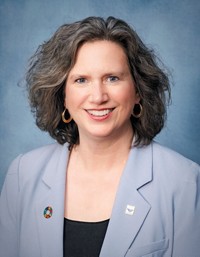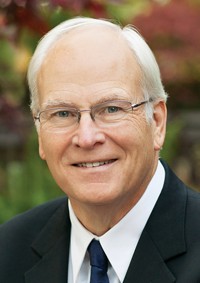Advertisement
Grab your lab coat. Let's get started
Welcome!
Welcome!
Create an account below to get 6 C&EN articles per month, receive newsletters and more - all free.
It seems this is your first time logging in online. Please enter the following information to continue.
As an ACS member you automatically get access to this site. All we need is few more details to create your reading experience.
Not you? Sign in with a different account.
Not you? Sign in with a different account.
ERROR 1
ERROR 1
ERROR 2
ERROR 2
ERROR 2
ERROR 2
ERROR 2
Password and Confirm password must match.
If you have an ACS member number, please enter it here so we can link this account to your membership. (optional)
ERROR 2
ACS values your privacy. By submitting your information, you are gaining access to C&EN and subscribing to our weekly newsletter. We use the information you provide to make your reading experience better, and we will never sell your data to third party members.
Policy
ACS: Your Voice On Public Policy
by William F. Carroll Jr., Chair, Committee on Public Affairs & Public Relations
May 17, 2010
| A version of this story appeared in
Volume 88, Issue 20
ACS has set a goal of being a premier advocacy organization for its members and for the chemistry profession. The Committee on Public Affairs & Public Relations (PA&PR) has a special responsibility in helping to achieve this goal.
First, a definition is required: The word “advocacy” in this context means working to communicate ACS’s positions to legislators, regulators, and their staff members, as well as to other groups working in the area of public policy. ACS has a special duty to advocate because of provisions in our national charter—granted by Congress—that call on the society to advance the chemistry enterprise, promote chemical science research, increase communication of chemical knowledge, and foster public welfare and education.
The ACS Board of Directors plays a central role in establishing and communicating the society’s positions on matters of public interest. The board takes the charter and this responsibility very seriously and works to ensure that ACS speaks with a consistent and effective voice when it engages the public, policymakers, its members, and others on topics of public importance.
The current ACS advocacy portfolio is focused on four broad themes:
■ Fostering innovation through research and technology development.
■ Strengthening science education and the scientific workforce.
■ Advancing science through openness.
■ Promoting sustainability and science in public policy.
Our priorities for 2010 can be found online at www.acs.org/policy (click on “ACS Positions on Policy Issues”). They are in effect through the end of this year; the board will consider 2011–12 priorities in December.
To ensure that the society speaks with one voice, ACS has a process for developing positions on issues related to these priorities. Position statements typically originate with ACS committees, which are made up of members with particular expertise and include the Committees on Chemistry & Public Affairs, Education, Science, Environmental Improvement, International Activities, and Economic & Professional Affairs. Each has open sessions at the national meetings, and committee reports appear in C&EN or on C&EN Online. These committees often consult with other stakeholders and interested members as they draft their positions.
In some cases, committees hold symposia and “town hall” meetings to solicit dialogue on important topics. The Committee on Environmental Improvement will host such a panel on the science related to climate change at the upcoming fall national meeting in Boston. ACS members will use information gathered from the panel to help develop a new statement to replace the expiring climate-change position. I encourage you to follow the work of these committees and engage with them in person or through the ACS Network (www.acs.org/acsnetwork).
When a committee has completed its work, the draft statement is passed on to my committee, PA&PR, which comprises seven members of the board who analyze and discuss proposed policy statements. PA&PR asks a number of questions:
■ Does the draft address an issue of society-wide importance that will help advance one of the four priorities?
■ Is it based in science?
■ Is it something legislators need to hear?
■ Does it generally represent the best interest of the society, its members, and the chemistry discipline?
Although PA&PR has been delegated the authority to approve statements, those of particular importance or complexity are considered by the full board. The 29 current statements, which have extendable three-year lifetimes, can be found on the Web, sorted by topic, at www.acs.org/policy.
Once approved, these statements form the basis for advocacy with federal and state governments by our members and the ACS Office of Public Affairs (OPA). When OPA issues an alert to the Act 4 Chemistry Network (a group of 18,000 members who have expressed interest in participating in ACS advocacy), it is based on the positions in these statements applied to action currently under consideration by the government.
During my years of involvement with ACS, I have played several roles in the public policy process. When I was chair of the Committee on International Activities, I led a committee in which experts on certain issues developed draft statements for the board to consider. As the 2005 president of ACS, I was the main spokesperson for the society on public matters, responsible for delivering our collective messages.
As science and engineering professionals, ACS members have considerable expertise that can strengthen policy made at the local, regional, national, and global levels. This goes beyond our rights and responsibilities as citizens to petition our government and its elected and appointed decisionmakers. It goes to explaining science and, particularly, the importance of chemistry to policymakers who likely are not scientists themselves.
Each of us can do this. To be more involved in delivering the policy messages, take advantage of the society’s Act 4 Chemistry Network and Chemistry Ambassador program. All the tools you need to bridge the gap between chemistry and policy can be found in the “ACS Member Advocacy—Policy Activities” section of www.acs.org/chemistryambassadors.
You, the members of ACS, are the best spokespeople for chemistry and the sciences, and our voice grows stronger as more of us become involved. Thank you for all you do for the society and the profession.
Views expressed on this page are those of the author and not necessarily those of ACS.






Join the conversation
Contact the reporter
Submit a Letter to the Editor for publication
Engage with us on Twitter